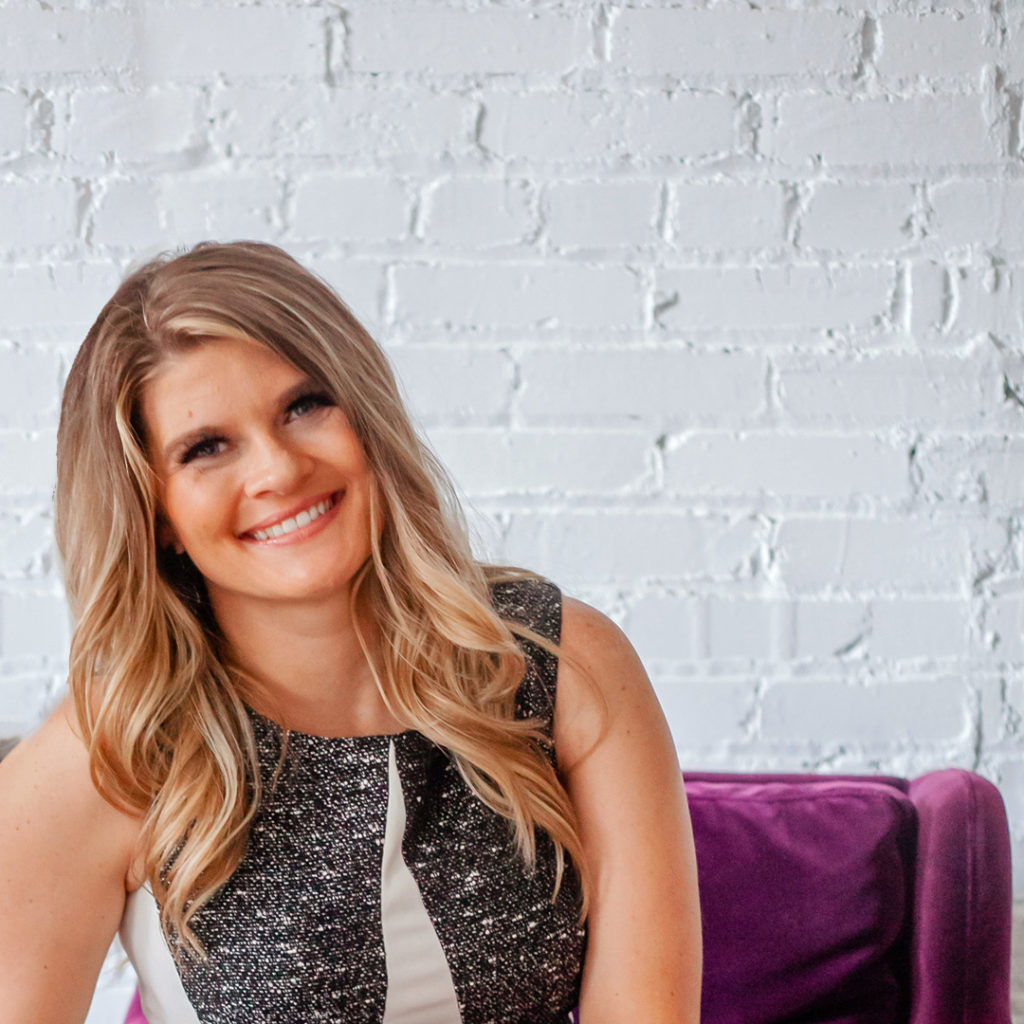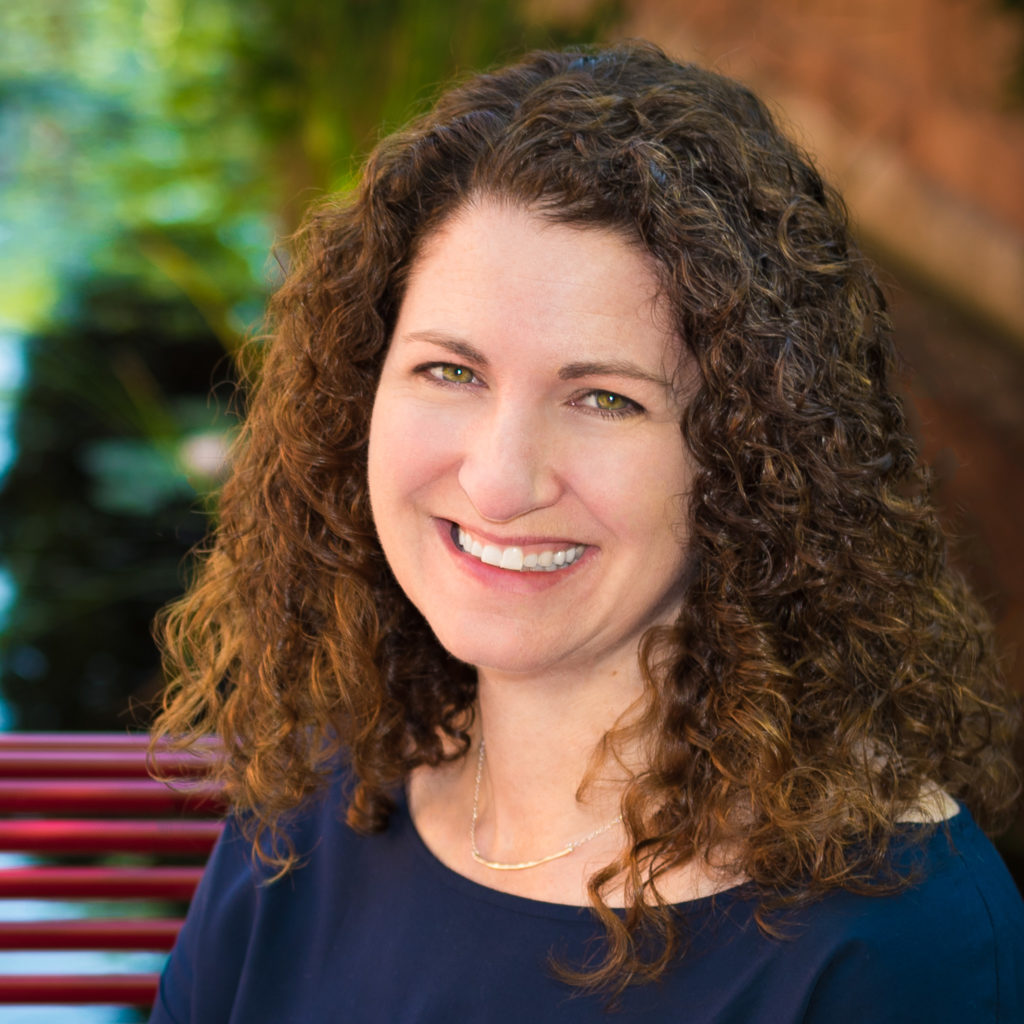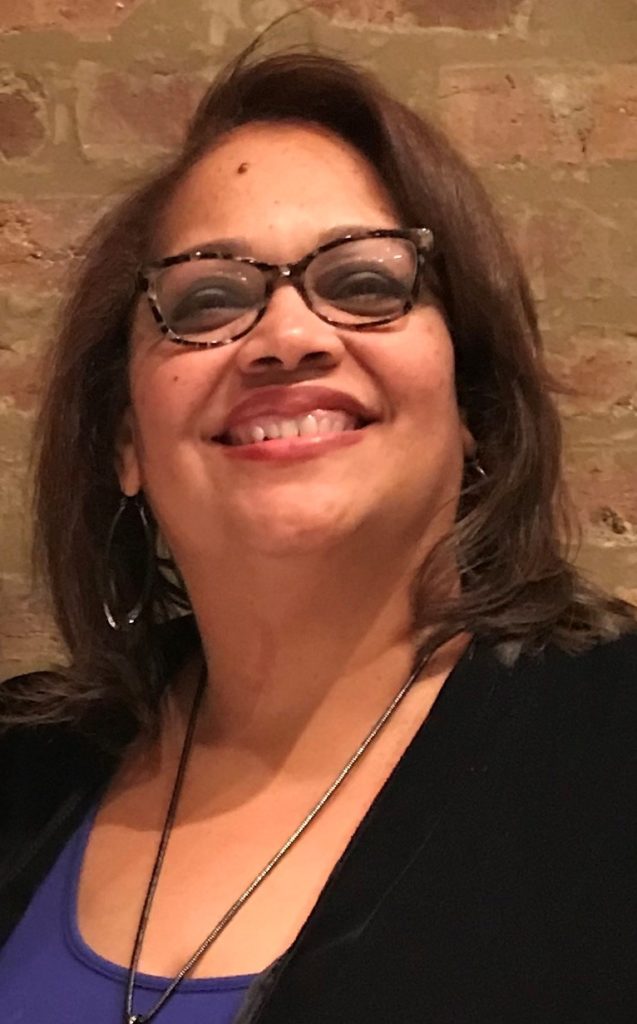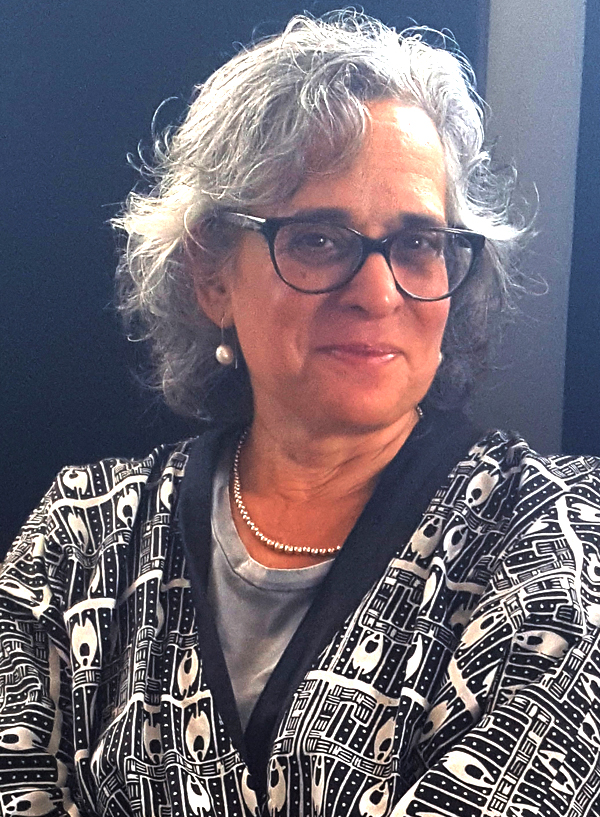

This event was co-hosted by the Jordan Institute for Families | UNC School of Social Work, the Frank Porter Graham Child Development Institute, and National Implementation Research Network (NIRN).
 Lacy Dicharry, MS, MBA, CDTLF, is a speaker, author, coach, consultant, and an internationally known expert in stakeholder engagement, change management, and leadership development. Lacy currently serves as the Leadership Development Coordinator at Woman’s Hospital and as a private Executive Leadership Coach and Consultant. Over the past 19 years, her work has impacted more than 250,000+ individuals in more than 45+ countries across 6 continents. Lacy is a Certified Dare to Lead Facilitator, based on the research of Dr. Brené Brown, the President of the International Foster Care Organisation, and the Secretary/Treasurer of Mental Health America. Lacy was awarded a SAMHSA VOICE Award in 2014 for her advocacy around youth engagement and mental health. Currently, Lacy is writing a book [working title] “Lived Experience Leadership: How we gain leadership skills through overcoming adversity,”, and is pursuing her Ph.D. in Leadership and Human Resource Development. Visit: www.lacydee.com/daretolead
Lacy Dicharry, MS, MBA, CDTLF, is a speaker, author, coach, consultant, and an internationally known expert in stakeholder engagement, change management, and leadership development. Lacy currently serves as the Leadership Development Coordinator at Woman’s Hospital and as a private Executive Leadership Coach and Consultant. Over the past 19 years, her work has impacted more than 250,000+ individuals in more than 45+ countries across 6 continents. Lacy is a Certified Dare to Lead Facilitator, based on the research of Dr. Brené Brown, the President of the International Foster Care Organisation, and the Secretary/Treasurer of Mental Health America. Lacy was awarded a SAMHSA VOICE Award in 2014 for her advocacy around youth engagement and mental health. Currently, Lacy is writing a book [working title] “Lived Experience Leadership: How we gain leadership skills through overcoming adversity,”, and is pursuing her Ph.D. in Leadership and Human Resource Development. Visit: www.lacydee.com/daretolead
 Cynthia Franco, LMSW, MSOL, is the Director of the Child Fatality Review Team at the New York City Administration for Children’s Services. Cynthia has seventeen years of experience in Child Welfare – protecting children, building teams and being a daring leader. She spends a lot of her time researching, talking and writing about creating and sustaining work environments that are psychologically safe, compassionate and joyous and how these contribute to increased staff engagement, wellness, productivity and positive organizational outcomes. Cynthia is passionate about leadership development and humanizing organizational culture. Cynthia has earned Masters’ degrees in Social Work and Organizational Leadership.
Cynthia Franco, LMSW, MSOL, is the Director of the Child Fatality Review Team at the New York City Administration for Children’s Services. Cynthia has seventeen years of experience in Child Welfare – protecting children, building teams and being a daring leader. She spends a lot of her time researching, talking and writing about creating and sustaining work environments that are psychologically safe, compassionate and joyous and how these contribute to increased staff engagement, wellness, productivity and positive organizational outcomes. Cynthia is passionate about leadership development and humanizing organizational culture. Cynthia has earned Masters’ degrees in Social Work and Organizational Leadership.
 Dr. Robin Leake, Ph.D. is a Research Professor at the Graduate School of Social Work the Acting Executive Director of the Butler Institute of Families at the University of Denver. Dr. Leake has over 20 years of experience in social science and intervention research and evaluation, with an emphasis on implementation of trauma-informed practice and organizational and workforce development in child welfare. Dr. Leake is the Project Director for the National Child Welfare Workforce Institute (NCWWI) and the co-Principal Investigator for the Children’s Bureau Capacity Building Center for Tribes.
Dr. Robin Leake, Ph.D. is a Research Professor at the Graduate School of Social Work the Acting Executive Director of the Butler Institute of Families at the University of Denver. Dr. Leake has over 20 years of experience in social science and intervention research and evaluation, with an emphasis on implementation of trauma-informed practice and organizational and workforce development in child welfare. Dr. Leake is the Project Director for the National Child Welfare Workforce Institute (NCWWI) and the co-Principal Investigator for the Children’s Bureau Capacity Building Center for Tribes.
 Kimberly A. Mann, Ph.D., L.C.S.W., currently serves as the DCFS Deputy Director for Research and Child Well-Being. Within her current role, she promotes the physical, cognitive, social and emotional well-being of youth served by the child welfare system and administers programs that support the developmental needs of children aged 0-6. She oversees early childhood programming and system integration between the child welfare and early childhood systems. She also leads the Department’s efforts to integrate research and lessons learned through evaluation into the child welfare system. Since joining the Department in 2008, she has guided the development of trauma-informed practices, served as Project Director for the Illinois Birth- Three Title IV-E Waiver and currently leads the implementation of the Early Childhood Court Team initiative. Her practice, program development and research interests include clinical practice with children and their families, and the impact of trauma in the lives of youth. Dr. Mann has more than 20 years of graduate and undergraduate teaching experience in Social Work; and 30 years’ experience working with youth and families, primarily in child welfare, public school and community-based settings.
Kimberly A. Mann, Ph.D., L.C.S.W., currently serves as the DCFS Deputy Director for Research and Child Well-Being. Within her current role, she promotes the physical, cognitive, social and emotional well-being of youth served by the child welfare system and administers programs that support the developmental needs of children aged 0-6. She oversees early childhood programming and system integration between the child welfare and early childhood systems. She also leads the Department’s efforts to integrate research and lessons learned through evaluation into the child welfare system. Since joining the Department in 2008, she has guided the development of trauma-informed practices, served as Project Director for the Illinois Birth- Three Title IV-E Waiver and currently leads the implementation of the Early Childhood Court Team initiative. Her practice, program development and research interests include clinical practice with children and their families, and the impact of trauma in the lives of youth. Dr. Mann has more than 20 years of graduate and undergraduate teaching experience in Social Work; and 30 years’ experience working with youth and families, primarily in child welfare, public school and community-based settings.
 Deborah Rubien, LCSW, is the Director of Special Projects at New York City Administration for Children’s Services (ACS) – Workforce Institute. ACS is the government agency responsible for child welfare, juvenile justice and subsidized child care in New York City. Deborah is currently leading the implementation of Safety Culture to all parts of the agency, following its successful pilot in the agency’s child fatality review process. Prior to this project, Deborah coordinated the leadership team that launched the implementation of eleven evidence-based and -informed practice models in the ACS preventive service delivery system. She was responsible for integrating the principles and practice of Implementation Science (IS) into all aspects of the initiative, which garnered national attention as an exemplar for successful and sustainable implementation of evidence-based programs in public child welfare. Deborah recently had the honor of working with child welfare government and advocacy organizations in New South Wales and Victoria, Australia, to make improvements in their child welfare systems. Deborah lives with her family in Queens, New York City.
Deborah Rubien, LCSW, is the Director of Special Projects at New York City Administration for Children’s Services (ACS) – Workforce Institute. ACS is the government agency responsible for child welfare, juvenile justice and subsidized child care in New York City. Deborah is currently leading the implementation of Safety Culture to all parts of the agency, following its successful pilot in the agency’s child fatality review process. Prior to this project, Deborah coordinated the leadership team that launched the implementation of eleven evidence-based and -informed practice models in the ACS preventive service delivery system. She was responsible for integrating the principles and practice of Implementation Science (IS) into all aspects of the initiative, which garnered national attention as an exemplar for successful and sustainable implementation of evidence-based programs in public child welfare. Deborah recently had the honor of working with child welfare government and advocacy organizations in New South Wales and Victoria, Australia, to make improvements in their child welfare systems. Deborah lives with her family in Queens, New York City.